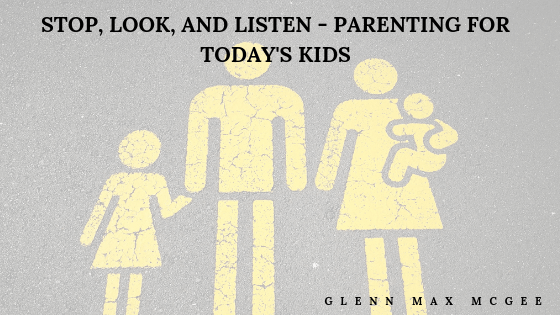The previous blog warned of the ramifications of overprotective parenting. However, minimal parenting can also lead to big problems so what is the perfect balance. An enormous body of research exists on parenting styles and one article I found particularly helpful was “Why Parenting Styles Matter When Raising Children.” The authors summarized some comprehensive research https://www.verywellmind.com/parenting-styles-2795072 and came to this conclusion:
Among the findings of these studies:
- Authoritarian parenting styles generally lead to children who are obedient and proficient, but they rank lower in happiness, social competence, and self-esteem.
- Authoritative parenting styles tend to result in children who are happy, capable, and successful.
- Permissive parenting often results in children who rank low in happiness and self-regulation. These children are more likely to experience problems with authority and tend to perform poorly in school.
- Uninvolved parenting styles rank lowest across all life domains. These children tend to lack self-control, have low self-esteem, and are less competent than their peers.
Baumrind notes that these parents “monitor and impart clear standards for their children’s conduct. They are assertive, but not intrusive and restrictive. Their disciplinary methods are supportive, rather than punitive. They want their children to be assertive as well as socially responsible, and self-regulated as well as cooperative.”
It is this combination of expectation and support that helps children of authoritative parents develop skills such as independence, self-control, and self-regulation.
While I agree with Baumrind, when I speak to large groups about what we adults can do to ensure the mental, physical, social, and emotional health of our children, grandchildren, nieces and nephews, I don’t recommend or much mention parenting styles. What I emphasize is STOP, LOOK, LISTEN. Like the old railroad warnings, that train you don’t see coming is the most dangerous for our kids. When we are vigilant, when teachers of students of their students, when friends stop, look and listen to peers, we can prevent tragedy and redirect the speeding train. Here are a few ideas:
STOP
Focusing on adult issues: As a parent, you frequently must put your child’s needs above your own. When it comes to looking out for red flags in your child’s behavior, this is especially true. If you are focused on your own issues, you will miss signals your child is trying to send you. Stop focussing on adult issues and keep your focus on the child.
Rationalizing their behavioral changes as mood swings:
Instead of rationalizing behavioral changes as mood swings, dig deeper. It may be a mood swing but more often than not, there is something plaguing the child that is causing them to act out.
Talking and look and listen more: As adults, we fall into the false belief that we know it all. Often times, a child is trying to tell you something but you are too busy talking to hear them. Allow children to speak to you through their words as well as their actions.
LOOK
Signs of sleep deprivation: As I wrote about in my blog on sleep deprivation in teens, American children, especially teenagers, are sleep deprived on a regular basis. As an adult, it is part of your job to look for signs of sleep deprivation: irritability, aggression, loss or increase in appetite. When you see these signs, step in. Provide ways for the child to get the amount of sleep they need.
Disengaging in favorite activities: As soon as you notice a child disengaging from their favorite activities, you know something is wrong. Investigate. Ask the child why. If you cannot gather any info from them, ask their friends, their teachers and administrators. When a child disengages from an activity they used to enjoy, it is usually a sign of something larger at play.
Into their social media: Statistics reveal that 71% of teens admit to hiding their online activities from their parents. It is not just suggested but rather advised that parents thoroughly check their children’s social media posts.
LISTEN
To what is not being said: When a child is in trouble or struggling through something, they may be too paralyzed with fear to speak up. Either that or they will avoid it altogether. By paying attention to what your child is not saying, you are helping them by noticing the issue yourself. A lot of what is not being said by your child will appear in the form of body language shifts, emotional cues or smaller issues that stem from a larger problem at hand.
To you child’s peers: Some of the best information about your own child will come via their friends and peers. Next time you are driving everyone to basketball practice, listen to their chatter. They will reveal more than they realize and you will gain insight into your child’s life.
To your own gut: You know your child better than anyone else, even themselves. If you know in your gut that something is wrong, it probably is. Listen to your gut an take immediate actions if you truly feel there is something going on with your child.

